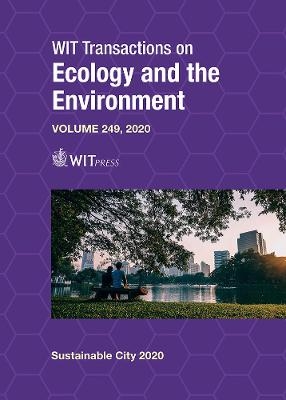
The Sustainable City XIV
WIT Press (Verlag)
978-1-78466-413-8 (ISBN)
The challenge of planning sustainable contemporary cities lies in considering the dynamics of urban systems, exchange of energy and matter, and the function and maintenance of ordered structures directly or indirectly supplied and maintained by natural systems. The task of researchers, aware of the complexity of the contemporary city, is to improve the capacity to manage human activities, pursuing welfare and prosperity in the urban environment.
Any investigation or planning for a city ought to consider the relationships between the parts and their connections with the living world. The dynamics of its networks (flows of energy-matter, people, goods, information and other resources) are fundamental for an understanding of the evolving nature of today’s cities.
Large cities are probably the most complex mechanisms to manage. They represent a fertile ground for architects, engineers, city planners, social and political scientists, and other professionals able to conceive new ideas and time them according to technological advances and human requirements.
Papers presented at the 14th International Conference on Urban Regeneration and Sustainability address the multidisciplinary components of urban planning, the challenges presented by the increasing size of cities, the number of resources required and the complexity of modern society. Various aspects of the urban environment are covered and a focus is placed on providing solutions that lead towards sustainability.
Urban areas result in a series of environmental challenges varying from the consumption of natural resources and the subsequent generation of waste and pollution, contributing to the development of social and economic imbalances. As cities continue to grow all over the world, these problems tend to become more acute and require the development of new solutions.
The challenge of planning sustainable contemporary cities lies in considering the dynamics of urban systems, exchange of energy and matter, and the function and maintenance of ordered structures directly or indirectly supplied and maintained by natural systems. The task of researchers, aware of the complexity of the contemporary city, is to improve the capacity to manage human activities, pursuing welfare and prosperity in the urban environment.
Any investigation or planning for a city ought to consider the relationships between the parts and their connections with the living world. The dynamics of its networks (flows of energy-matter, people, goods, information and other resources) are fundamental for an understanding of the evolving nature of today’s cities.
Large cities are probably the most complex mechanisms to manage. They represent a fertile ground for architects, engineers, city planners, social and political scientists, and other professionals able to conceive new ideas and time them according to technological advances and human requirements.
Papers presented at the 14th International Conference on Urban Regeneration and Sustainability address the multidisciplinary components of urban planning, the challenges presented by the increasing size of cities, the number of resources required and the complexity of modern society. Various aspects of the urban environment are covered and a focus is placed on providing solutions that lead towards sustainability.
| Erscheinungsdatum | 04.11.2020 |
|---|---|
| Reihe/Serie | WIT Transactions on Ecology and the Environment ; 249 |
| Verlagsort | Southampton |
| Sprache | englisch |
| Maße | 178 x 254 mm |
| Themenwelt | Naturwissenschaften ► Biologie ► Ökologie / Naturschutz |
| Naturwissenschaften ► Geowissenschaften ► Geografie / Kartografie | |
| ISBN-10 | 1-78466-413-8 / 1784664138 |
| ISBN-13 | 978-1-78466-413-8 / 9781784664138 |
| Zustand | Neuware |
| Haben Sie eine Frage zum Produkt? |
aus dem Bereich


